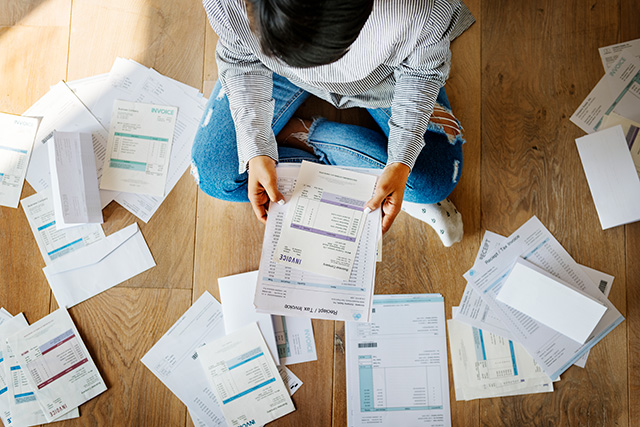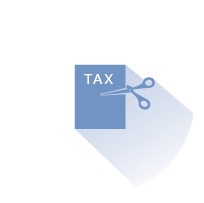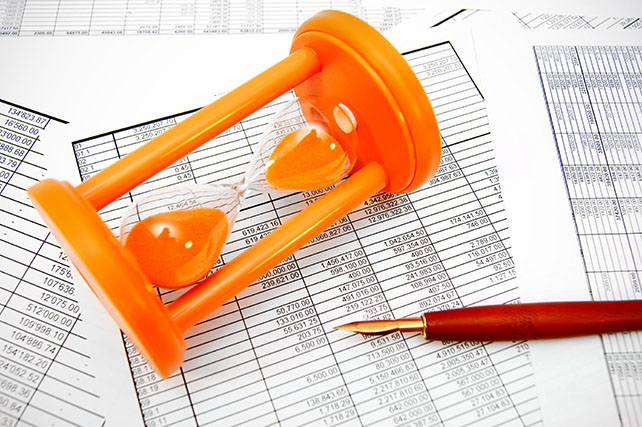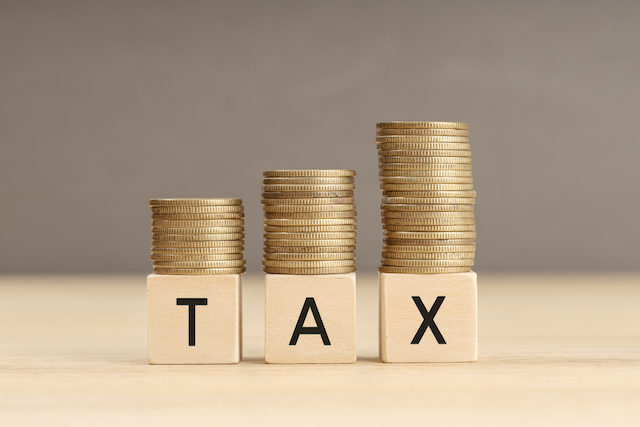Why is it Important to Settle Company Tax Debt?
If your company starts accruing tax debts, it is a sign that the business is not in a stable position. Ignoring the issue only creates more opportunities for the problem to escalate — perhaps even resulting in your firm closing down. The sooner you take action, the more likely you are to save your company.
HMRC has started to clamp down on businesses that do not settle their company tax debts. Potential consequences include applying for a winding up petition that could see your firm going into liquidation. Everything that you have worked so hard to achieve will be lost. This is why it is important to seek specialist guidance as soon as you realise you are in financial difficulties.
Dealing with financial difficulty is understandably a difficult time, and you may struggle to know where to turn. Not only will it make the day-to-day operations of your company extremely stressful, but it could also seep into your personal and family life, too. Taking swift and decisive action, such as seeking out specialist tax debt solutions, will provide you with some much-needed breathing space and an opportunity to lighten the load. This also lets you get on with the important job of running your business, which in turn, gives you the means to put your company in a better financial position going forward.
There are several ways in which a struggling business can potentially turn around its fortunes. The longer you leave the situation to fester, the fewer options you are likely to have at your disposal. You will also find that the window of opportunity for saving your firm becomes narrower and narrower.
Of course, there is no one-size-fits-all approach when it comes to settling company debt. Each business is completely different and will have a unique set of circumstances. Seeking specialist and independent advice will enable you to understand exactly what options are available to you and, crucially, which ones are most likely to benefit your business.
Can You Negotiate Tax Debt?
Yes. HMRC is willing to negotiate tax debt with struggling companies, provided they show commitment to resolving their issues. The more upfront and honest you are, the more likely HMRC will be to assist.
It is a good idea to speak to HMRC as soon as you notice you are building up tax arrears. Leaving the problem to continue could result in the situation getting much worse — such as the issuing of a winding up petition to close down your company.
When speaking with HMRC, it is important that you communicate clearly and concisely. Set out exactly what you would like to achieve from the call and ensure you have a plan of action that is good enough to withstand questioning.
Negotiating a settlement might take a lot of effort, but will be worth it in the long run.
What if You Can’t Pay Tax Debt?
The most important thing to do when struggling to pay company tax debts is to ensure you deal with the problem head-on. Gain a thorough understanding of your situation and of the options available to you. You could also speak to HMRC directly to see if it is possible to make your arrears more manageable.
Should negotiations fail, there are still other potential avenues for you to explore. These include:
- Company Voluntary Arrangements
- Administration
- Commercial finance
- Cash flow management
As we have mentioned before, the longer you leave the situation, the less viable these options will be.
How to Settle Your Tax Debt
There are several essential steps you should take to settle your tax debt. From gaining a thorough understanding of your situation to contacting HMRC to reach an agreement, these important points will give you the best possible chance of succeeding.
Types of Business Taxes
As a business owner, you will be expected to pay a number of taxes to HMRC, including Employers’ National Insurance Contributions and Corporation Tax. Problems can arise if you constantly find you are unable to afford these obligations, or regularly pay them late.
A tax collection system that ensures the government receives revenue from a company’s employees. The scheme is operated by employers, who must deduct Income Tax and other contributions from their workers’ wages and pay these levies to HMRC. Businesses are also responsible for submitting tax returns to show what has been deducted and paid.
Under the Real Time Information (RTI) system, employers are able to submit these tax returns to HMRC every time they run a payroll. This replaced the old regime, in which companies would need to send in end of year returns.
Another form of earnings tax, NICs are paid by both employers and employees. Workers will have their contributions deducted from their salary alongside Income Tax, with the funds used to go towards their state pension. They can also elect to pay extra NICs to plug any previous gaps in employment to ensure they receive their full pension amount.
Employers, meanwhile, will also pay ‘secondary’ Class 1 NICs on top of their workers’ earnings. The exact amount depends on how much the employee earns and their National Insurance category letter.
A levy that is paid by all businesses in the UK. It is calculated as a percentage of the firm’s annual profits. Unlike taxes paid by individuals, CT must be worked out by companies themselves rather than HMRC. Tax returns must be submitted and paid every year.
Another difference between Corporation Tax and levies on individuals is the fact that there is no form of tax-free allowance — meaning absolutely all profits are taxable. There are, however, a number of deductions and expenses that can be claimed to reduce the overall bill.
Known as a ‘consumption tax’, VAT is applied to purchases of goods or services that are deemed taxable. Although VAT is paid by companies to HMRC, it is not necessarily a tax on the companies themselves. This is because the actual cost will have been paid by the consumer, which is covered by the purchase price of the goods or service they bought.
Companies that have a turnover of more than £85,000 must register for VAT and charge this levy on all of their applicable goods or services. The amount of money charged and paid by a business should also be sent to HMRC in the form of a VAT Return every three months.
Our Tax Debt Management Services
Inquesta’s range of tax debt solutions services are designed to help businesses no matter what industry they are in.

How Inquesta Offers Company Tax Debt Advice
If you are struggling to pay your company taxes, you can rely on Inquesta to assist. We have amassed decades of experience in providing specialist tax debt solutions to businesses in all areas of industry.
Over the years, we have built up an incredibly strong working relationship with HMRC and have a deep understanding of their practices and what they look out for. This means we are able to offer invaluable information and guidance to company directors who are looking to sort out their tax arrears. We are also highly-respected and trusted in the industry.
As a specialist business recovery consultant and licensed insolvency practitioner, we are able to offer a truly holistic service that is difficult to find elsewhere. Not only will we provide you with efficient tax debt solutions, but we can also carry out a comprehensive review of your company’s circumstances to pinpoint areas of improvement — so you can steer yourselves towards a more stable and prosperous future.
We begin with a free, no-obligation consultation that establishes your current situation and how we believe we can help. This immediately gives you the peace of mind you need that you are working with a company that is dedicated to finding the best possible solution for you.
Get In Touch
Our Specialist Team
Inquesta has amassed a dedicated team of experts who can provide struggling businesses with a wide range of tax debt solutions.

Steven Wiseglass
Director of Insolvency
A co-founder of Inquesta, Steven is a licensed Insolvency Practitioner with over a decade of experience in the field. He is a member of the Insolvency Practitioners Association, Association of Business Recovery Professionals (R3), and his insolvency licence is issued by the Insolvency Practitioners Association. In addition, he sits on the R3 committees of the North West Regional Committee.
Steven specialises in advising directors of small to medium-sized businesses, and has a wealth of expertise in providing the most appropriate advice whatever the firm’s circumstances may be. He has also been instrumental in helping company directors save their business and rebuild them into successful enterprises.

Steven Mason
Insolvency Practitioner
A licensed Insolvency Practitioner, Steven specialises in advising directors of small and medium-sized businesses on their options when faced with financial problems. These include liquidations, administrations, and company closures.

Martin Willock
Insolvency Advisor
Martin specialises in advising directors on matters involving corporate insolvency.
Latest Articles
How Can an Increase in Corporation Tax Affect a Business
While an increase in corporation tax rates might not attract quite as much publicity as income tax rises, for example, the impact it can have on businesses can be significant. For many company owners, [...]
What Happens if a Limited Company Cannot Pay Corporation Tax
If your limited company cannot pay corporation tax, you are likely to be in a very tough situation. With sanctions, penalties, fines, and even the potential for the forced closure of your business potentially on [...]
What to do if a Limited Company Cannot Pay VAT
If you are the director of a limited company that cannot pay VAT, it is important that you understand the situation you are in — what you should do first, and what options are open [...]






